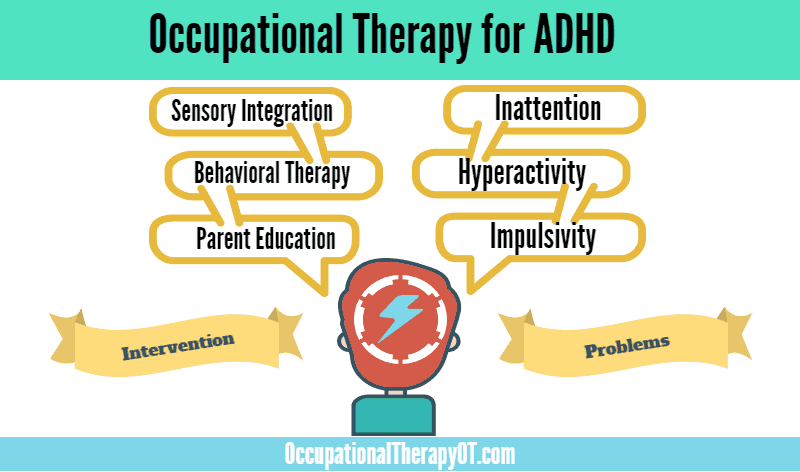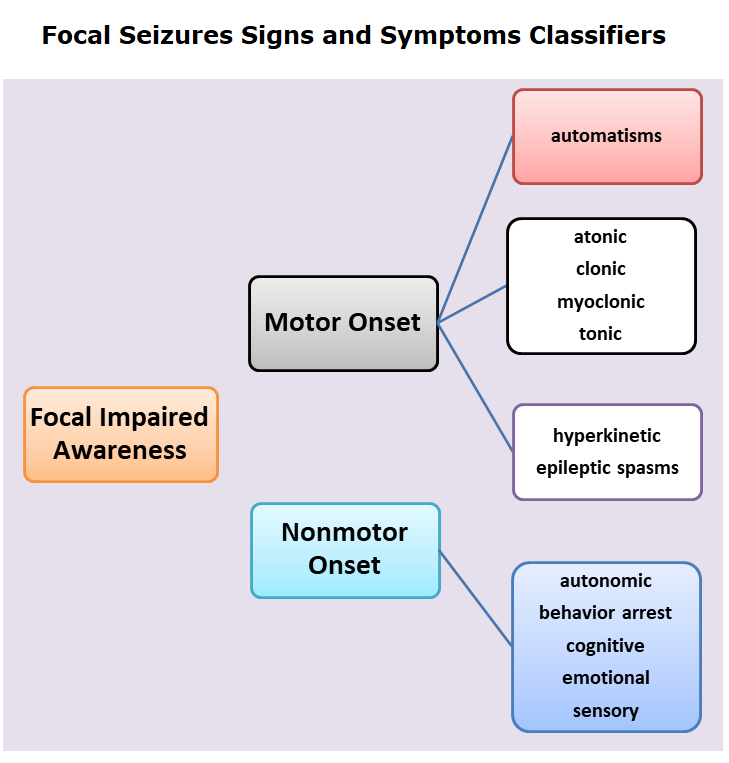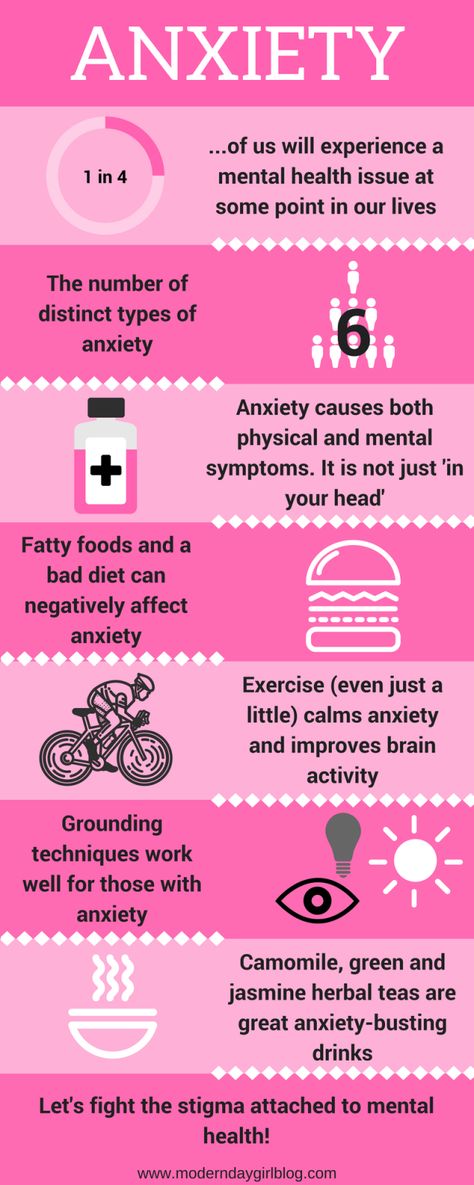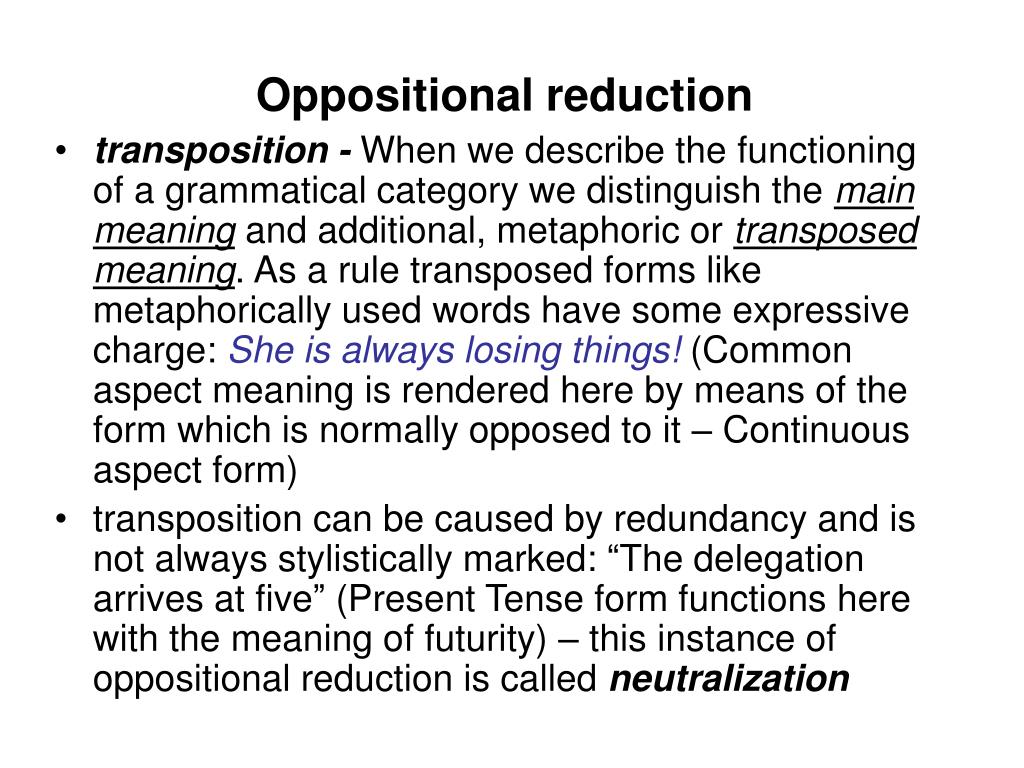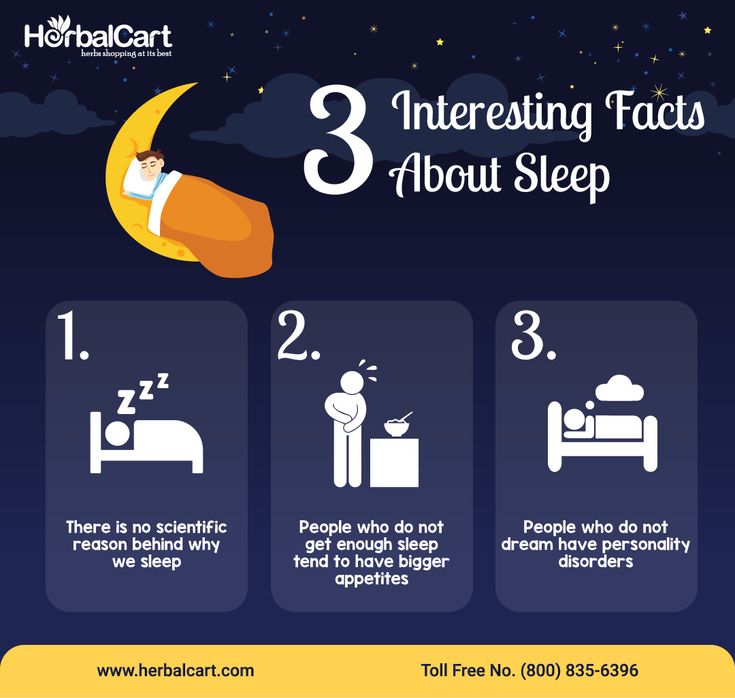What causes self doubt
10 Tips to Overcome Self-Doubt
October 29, 2020
About Self-Doubt
It’s normal to experience feelings of doubt when we are faced with new or challenging situations. Self-doubt is characterized by feelings of uncertainty regarding one or more aspects of the self. It is something that we all may experience at certain times in our lives. However, when it becomes debilitating for us, that’s when we may need more tools to overcome self-doubt.
Self-doubt may stem from previous negative experiences or from attachment style issues. Those with insecure attachments may have experience being criticized, that can contribute to self-doubt later in life. If someone has been told in the past that they’re “not good enough” or incapable of something, then this can have a large negative effect on their self-worth. We also have a deep societal pressure to achieve, which can be more harmful than motivating for us.
If persistent self-doubt is not addressed, it can lead to:
- Anxiety
- Depression
- Procrastination or lack of motivation
- Emotional instability
- Low self-esteem
- Difficulty making decisions
What is Imposter Syndrome?
Imposter syndrome goes hand-in-hand with self-doubt. Psychologists describe it as the experience of feeling like a fraud, despite having achieved success. Imposter syndrome is something that is especially felt among women and minority groups. With imposter syndrome, it can limit our courage to put ourselves out there in a meaningful way or go after new opportunities. It causes people to experience self-doubt about if they are “qualified enough” or doing “well enough,” in a job, a relationship, a friendship, as a parent, or any other activity (even though they usually are).
Self-doubt and imposter syndrome can have a significant negative effect on someone’s self-esteem. However, there are ways to combat these feelings and become more confident in ourselves and our abilities.
How to Overcome Self-Doubt
1- Practice Self-Compassion
If self-doubt is holding you back from taking a leap with your career or in another aspect of your life, it helps to remember that we are all human. We all make mistakes along the way and it’s okay to do so.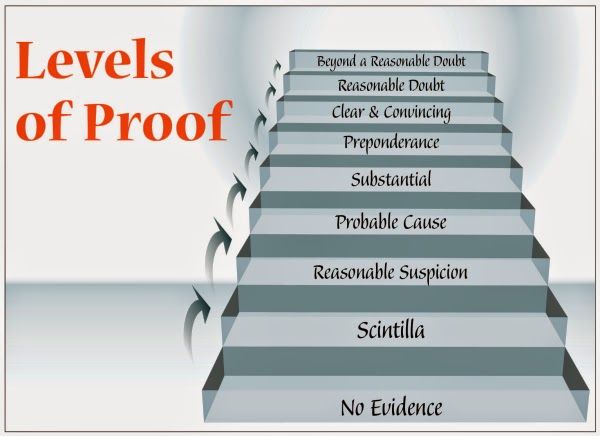 When we doubt our abilities, it’s often because we don’t want to make any room for mistakes. However, mistakes are also how we learn and grow. We can mitigate self-doubt and fear of failure by practicing being kind to ourselves, no matter the outcome.
When we doubt our abilities, it’s often because we don’t want to make any room for mistakes. However, mistakes are also how we learn and grow. We can mitigate self-doubt and fear of failure by practicing being kind to ourselves, no matter the outcome.
2- Remember Your Past Achievements
Remember when you may have been scared to do something, in school or work, but it actually ended up going really well? It helps to reflect on concrete achievements where something challenging for us turned into something great. A lot of achievements are born out of initial uncertainty or doubt. It helps to remind ourselves about the times that things have gone right, because the same thing could happen in the present moment.
On the flip side, it’s good to not focus too much on the past or past failures we might have had. The present moment is a new opportunity to do well, even if things didn’t go right the first time.
3- Try to Not Compare Yourself to Others
They say that comparison is the thief of joy. This saying rings true in many ways. If you’re experiencing self-doubt because you’re afraid you won’t accomplish something at the same level as someone else, then it can be a paralyzing feeling. Everyone’s journey and ideas of success are different. What we can control and focus on is our own path and where we want to take it, regardless of where other people are at or what they have done.
This saying rings true in many ways. If you’re experiencing self-doubt because you’re afraid you won’t accomplish something at the same level as someone else, then it can be a paralyzing feeling. Everyone’s journey and ideas of success are different. What we can control and focus on is our own path and where we want to take it, regardless of where other people are at or what they have done.
4- Be Mindful of Your Thinking
When negative thoughts begin to creep in, sometimes they are hard to recognize because we become so used to them. Imposter syndrome thrives off of these negative thoughts that tell us that we aren’t worthy of the place we’re at or that we won’t produce good work. Next time these thoughts persist, take a moment and ask yourself if you really believe that they are true. Consider how positive thinking may shift your mindset and allow you to be more confident in your abilities.
5- Spend Time With Supportive People
The friends and family members in our lives who believe in us and everything that we’re capable of will always be on our side. When you’re feeling self-doubt, surround yourself with these people. They can remind you of how talented and resilient you are during times when you’re not feeling that way about yourself.
When you’re feeling self-doubt, surround yourself with these people. They can remind you of how talented and resilient you are during times when you’re not feeling that way about yourself.
6- Find Validation From Within
While it’s great to feel reassured from others that we are doing a good job or that we are capable of accomplishing a difficult task, it’s equally important to have our own faith in ourselves. Constant reassurance doesn’t mean much if we still don’t believe in ourselves. Even if we aren’t the most confident about where we’re at, it’s good to practice being accepting of our strengths and all that we have to offer.
7- Remember That You’re The Harshest Critic
Would you doubt a friend who took on a new job or for the way they parent their kids the same way that you doubt yourself.? The answer is likely no. We will always be the harshest critic for ourselves. It’s a nice reminder to treat ourselves with the same kindness and compassion that we have for others, instead of being so critical on ourselves.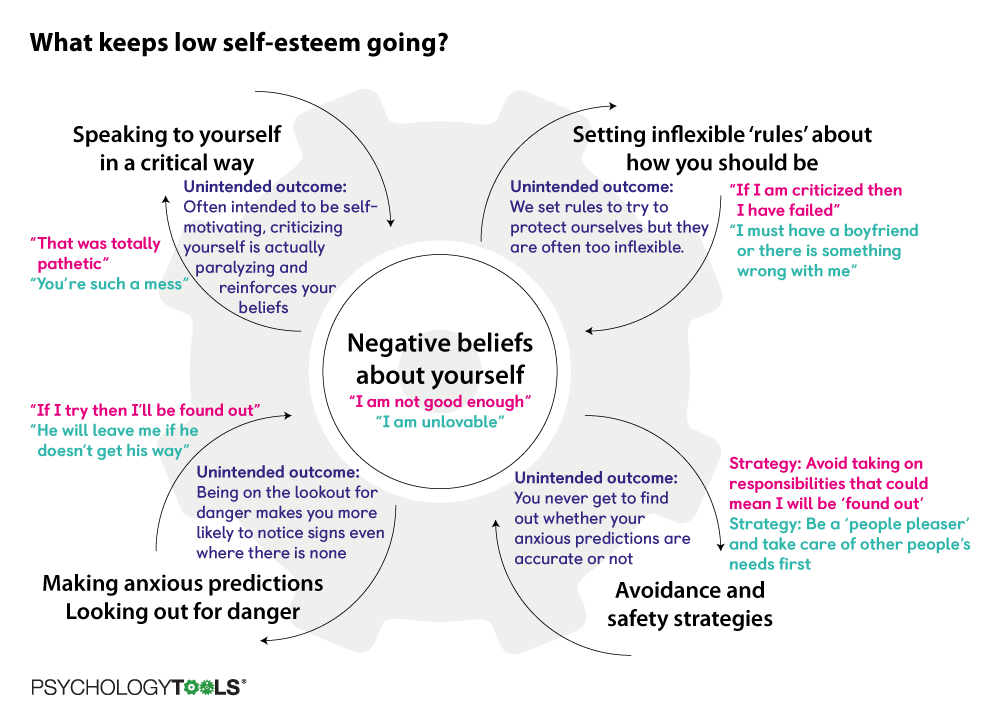
8- Identify Your Values
Take a moment to assess your values and what matters most to you. It may be that you’re kind to others, you’re a good friend, or that you contribute to something meaningful in your life. When we recognize these values and what truly matters to us, the fear of criticism from others falls by the wayside. And when we live aligned with our values, it doesn’t feel as detrimental to be criticized or make mistakes.
9- Keep a Journal
Journaling is always a therapeutic exercise to practice. Writing down your thoughts of self-doubt or experiences with imposter syndrome onto paper might be a good release. You may even realize after you see your concerns written down, that they may not be as detrimental as you thought they were. This can help to gradually overcome self-doubt.
10-Seek Professional Help
It may help to see a mental health professional to overcome self-doubt if these feelings persist to the point that makes it difficult for you to function in everyday life. Therapy can help us feel understood and give us tools to alleviate feelings of doubt. Cognitive behavioral therapy (CBT) is a popular form of therapy that can help specifically with self-doubt. With CBT, we can learn methods to challenge problematic ways of thinking that may lead to an improved mood and overall well being. If you’re interested in meeting with a therapist at Eugene Therapy to help overcome self-doubt, you can request an appointment today.
Therapy can help us feel understood and give us tools to alleviate feelings of doubt. Cognitive behavioral therapy (CBT) is a popular form of therapy that can help specifically with self-doubt. With CBT, we can learn methods to challenge problematic ways of thinking that may lead to an improved mood and overall well being. If you’re interested in meeting with a therapist at Eugene Therapy to help overcome self-doubt, you can request an appointment today.
Self-Doubt: Definition, Causes, & How to Overcome It
Self-Doubt: Definition, Causes, & How to Overcome DoubtsBy Tchiki Davis, MA, PhD What is self-doubt, what causes it, and how do we overcome it? In this article, we'll talk about why self-doubt is so problematic and what we can do to get rid of self-doubts. *This page may include affiliate links; that means I earn from qualifying purchases of products. Do you struggle to feel sure of yourself? Do you often question your beliefs or attitudes? Or do you often wonder if you've made the right decisions? Self-doubt can be a difficult experience. Before we dive in, we thought you might also be interested in testing your current level of well-being with our well-being quiz. And for our well-being entrepreneurs, coaches, and consultants? You can download our Wellness Business Growth eBook to get expert tips, tools, and resources to grow your wellness business fast. Are You a Therapist, Coach, or Wellness Entrepreneur? Grab Our Free eBook to Learn How toGrow Your Wellness Business Exponentially! ✓ Save hundreds of hours of time ✓ Earn more $ faster What Is Self-Doubt? (A Definition)Self-doubt can be defined as a state of uncertainty about the truth of anything (Braslow, Guerrettaz, Arkin, & Oleson, 2012). What does it mean to be full of self-doubt? What's the opposite of self-doubt? The Meaning of Self-DoubtSelf-doubt is thought to be different from self-efficacy—self-efficacy involves our expectations of performing well in a given domain. Rather, self-doubt appears to involve thoughts or rumination about overall competence. So, someone who is self-doubting may be very clear about who they are but not clear about their level of competence. Because certainty and clarity are experiences that we humans generally strive for, self-doubt can be quite an uncomfortable experience (Braslow, Guerrettaz, Arkin, & Oleson, 2012). What's Your Level of Self-Doubt?Here are some questions that can help you get a sense of your level of self-doubt (Oleson, Poehlmann, Yost, Lynch, & Arkin, 2000): "More often than not, I feel unsure of my abilities." "As I begin an important activity, I usually feel confident in the likely outcome." What Causes Self-Doubt?Research studies have aimed to see if they can create the experience of self-doubt. And indeed, they have found ways to do so. For example, if people are asked to list a whole bunch of examples of their assertiveness, they end up thinking that they aren't very assertive—how could they be if they can't even come up with enough examples for the study? Similar findings come from studies asking people to list lots of examples about their self-confidence, and even from studies asking people to list examples of a lack of confidence (Braslow, Guerrettaz, Arkin, & Oleson, 2012). So basically, anything that leads us to question our existing beliefs, thoughts, emotions, etc. Another potential cause of self-doubt arises from how the important people in our lives react to our judgments and mistakes (Braslow, Guerrettaz, Arkin, & Oleson, 2012). If they think that our mistakes make us stupid, we might be more likely to agree. If they think that our mistakes are just a normal part of being human, then we might agree with that. How We Deal With Self DoubtBecause self-doubt is such an unpleasant experience, we often deal with it in automatic and unconscious ways—some of which can be good and others not so good. Here are a few of these ways: Self-handicapping Overachievement Imposter syndrome Other enhancement Video: Freedom from Self-DoubtHow to Overcome Self DoubtSelf-doubt is closely linked to self-esteem. And according to Schiraldi (2007), our self-esteem is built on top of three building blocks:
Note how two of these are "unconditional", or in other words, unchangeable or certain.
Thinking through these questions and developing a mindset that helps you maintain your self-worth may help self-doubts from taking over. Tips to Stop Self-DoubtHere are a few more strategies that can help you stop self-doubts: Use positive self-talk Use affirmations for self-doubt Practice self-compassion Find your strengths Video: How To Eliminate Self-DoubtQuotes About Self-DoubtHere are a few quotes about self-doubt that may be inspiring or helpful.
Get Rid Of Self-Doubt With Self-TrustWhen we doubt ourselves, we might also have a hard time trusting ourselves. Will we make the right decisions? Are our opinions correct? What if we're wrong? How can we trust ourselves if even we aren't certain that our thoughts, emotions, and behaviors are right? If we're having trouble trusting ourselves, it may be because we haven't really been very reliable with ourselves. How to build self-trust
If you need to, take some time to reflect on your core values and how you want to be in the world. Doing so may help give you a greater sense of certainty about the actions you take. Video: Remove Your Self-Doubt - Music for Self-ReflectionArticles to Overcome Self-DoubtWant to keep learning about how to overcome self-doubt? Here are a few more articles on related topics that you may be interested in checking out.
Books to Help You Overcome Self-DoubtDo you feel like you still need more advice to overcome self-doubt? Here are a few books that may help.
Final Thoughts on Self-DoubtSelf-doubt can be an uncomfortable and problematic thought process. Luckily, there are some things we can do to start overcoming self-doubt and moving forward with more assuredness and confidence. Don't Forget to Grab Our Free eBook to Learn How toGrow Your Wellness Business Exponentially! References
| Are You a Therapist, Coach, or Wellness Entrepreneur? Grab Our Free eBook to Learn How to Grow Your Wellness Business Fast! Key Articles:
Content Packages:
|
How to overcome fear and self-doubt?
Larisa Parfentyeva
Our brain is an amazing mechanism. Its potential continues to amaze scientists. Each time they seem to rediscover this amazing organ. The brain is capable of higher functions, achievements and accomplishments, however, only a small part of people have truly realized themselves and revealed their internal reserves. Those who have achieved truly amazing success are very few. What prevents a person from using his mental functions qualitatively? Read about this and much more in the book "The Brain with Obstacles". nine0004
Its potential continues to amaze scientists. Each time they seem to rediscover this amazing organ. The brain is capable of higher functions, achievements and accomplishments, however, only a small part of people have truly realized themselves and revealed their internal reserves. Those who have achieved truly amazing success are very few. What prevents a person from using his mental functions qualitatively? Read about this and much more in the book "The Brain with Obstacles". nine0004
The monster inside us
Self-doubt has many names: lack of confidence, insecurity, shyness, low self-esteem, lack of self-confidence, and so on. But a rose, whatever you call it, smells just as wonderful, and in our case, just as prickly. This is not a beautiful flower, but sharp thorns of self-distrust. The other side of confidence. Fear. Self-doubt is a fundamental barrier because it keeps us from getting started. When it is not clear what to do, it becomes scary. Fear blocks action and instills a sense of vulnerability. A person begins to doubt his own abilities, ingenuity, strength, success. Attention switches from what needs to be done to self-defense, and this leads to a dead end. nine0004
A person begins to doubt his own abilities, ingenuity, strength, success. Attention switches from what needs to be done to self-defense, and this leads to a dead end. nine0004
How to notice an obstacle
A certain barrier provokes a characteristic behavior of a person. In case of self-doubt, it is hesitation. Primary action: you hesitate The person is ready to act, but does not dare to take a step. He stands on the edge of the springboard and thinks that he should jump, but he does not jump. He stops moving towards the goal.
What are the signs of self-doubt?
Do you believe that...
...problems are bigger than your ability to solve them.
You think that you lack the skills, talent or strength to cope with the task.
…you have nothing to offer.
What you have to say has no value; you cannot influence the lives of other people, give something good to the world, and what you want to tell is of no interest to anyone.
…you are doing your best.
You take the burden by yourself so as not to overstrain. It seems that many things in life are inaccessible to you, so you need to moderate your appetite. nine0004
…when you want to object, you have to agree, especially at work.
Even when you feel right, you'd rather be seen as sweet and accommodating than confrontational. You won't approach your boss about a promotion or a pay raise. Don't talk about problems. You follow all the rules, but you seem lacking initiative, insecure, lacking aspirations.
Hidden mechanism: failure to suppress fear
One of the most important functions of the brain is to protect a person. When the brain detects a threat, it activates the sympathetic nervous system, the part of the nervous system that controls the acute stress response, better known as the fight-or-flight response.
This ancient neurological mechanism prepares the body to respond to a potential threat.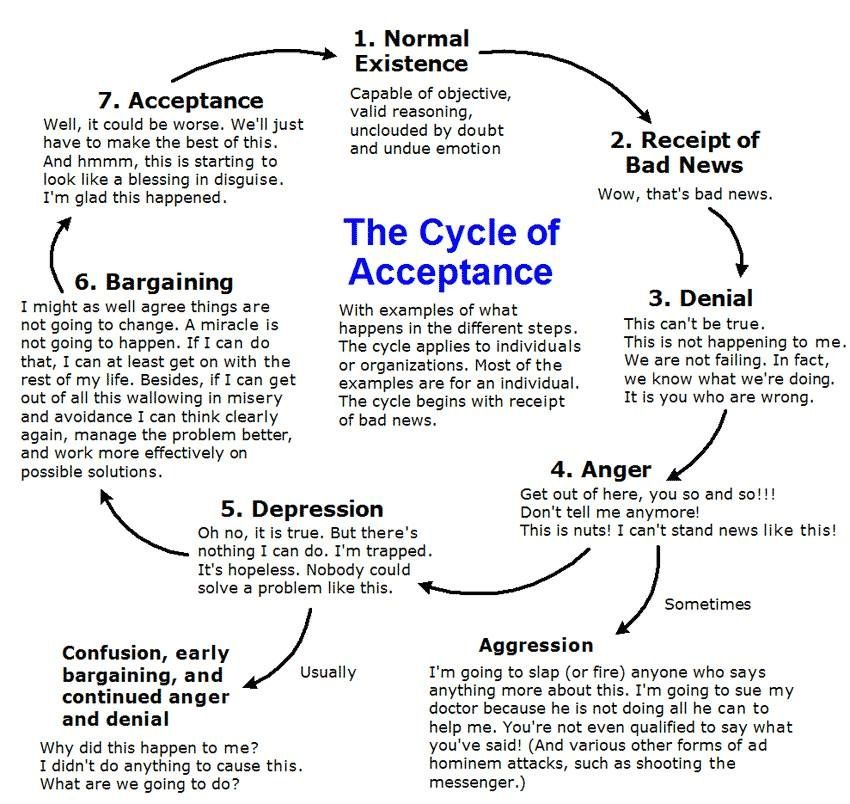 As soon as a person is in a situation that could threaten their well-being, this primitive part of the brain sends signals to different areas of the body to prepare them for a reaction. The heartbeat, pressure, breathing rate, the work of the sweat glands, blood vessels, bladder, muscles change - everything must function so that a person either copes with the threat, or can run away in the opposite direction with the maximum possible speed. When the brain comes to the conclusion that there is no threat, it hangs up the sympathetic nervous system, and the hyperactivity subsides. nine0004
As soon as a person is in a situation that could threaten their well-being, this primitive part of the brain sends signals to different areas of the body to prepare them for a reaction. The heartbeat, pressure, breathing rate, the work of the sweat glands, blood vessels, bladder, muscles change - everything must function so that a person either copes with the threat, or can run away in the opposite direction with the maximum possible speed. When the brain comes to the conclusion that there is no threat, it hangs up the sympathetic nervous system, and the hyperactivity subsides. nine0004
The concept of "fight or flight" was introduced in 1929 by Walter Cannon, who used this term to describe the reaction of animals to danger. Over time, scientists discovered a similar mechanism in humans, it includes a chain of four possible reactions, which is conventionally called this: "freeze - run - beat - give up." The first reaction is to freeze. Faced with a potentially dangerous situation, a person focuses on the stimulus and tries to figure out how to proceed.
For example, if you are walking through a forest and notice a fire, it is clear that the fire is a threat to you. You put off other things and switch your attention to danger. Then comes the choice of reaction: fight or flight. If it's just an unextinguished fire, you can stomp it. If the raging elements of a forest fire are in front of you, you will rush to run in the opposite direction with all your might, crying for help. nine0004
Source
Although the dangers have changed, the reaction of the brain has remained the same. As soon as he notices a threat, he activates the reaction "freeze - run - hit - give up." Faced with something potentially dangerous, a person freezes. Then he starts thinking about what to do next. Depending on how serious the situation seems, he can either fight or retreat. And if neither one nor the other can be done, the person gives up, remaining in a numb state.
If he decides that there are neither opportunities nor resources to solve the problem, it will gradually absorb the person. For example, it became known that your company plans to reduce staff. You freeze, stop and listen. What's next? Join the fight, fight? Go to the boss and find out the details? Analyze the employment contract and performance indicators to find arguments in your favor? Or maybe pick up the pace and show how valuable you are? Or is it better to run away? Start looking for another job, claim compensation and prepare an application for unemployment benefits? If you can't force yourself to do any of the above, "surrender" mode will turn on. nine0004
How to overcome an obstacle
Self-doubt is caused by fear. It turns on when the brain begins to respond to anxiety, although there is no real danger. To avoid this, it is necessary to train the brain to suppress unnecessary fears. The purpose of the following strategies is to cope with fear. To turn off the automatic occurrence of fear, you need to accustom yourself to this emotion. It is more likely to appear in a new and supposedly dangerous situation, and after repeatedly encountering an unusual task, the brain stops overreacting and gets used to it. In other words, if you periodically put yourself in situations that you fear the most, you can overcome fear and, as a result, overcome the barrier. The fight against doubts is an increase in self-confidence. Threats are no longer terrifying, and challenges are no longer perceived as unsolvable and exorbitant. nine0004
In other words, if you periodically put yourself in situations that you fear the most, you can overcome fear and, as a result, overcome the barrier. The fight against doubts is an increase in self-confidence. Threats are no longer terrifying, and challenges are no longer perceived as unsolvable and exorbitant. nine0004
Strategy 1: Don't Be Shy
It's hard to promote yourself because you're your own worst critic. But if you fail to convince even yourself of your own value, others will fail even more so. Develop the habit of praising yourself regularly. Remember your good qualities and rejoice in them. The next three exercises should make you remember your strengths. The more seriously you take them and the more you think about them, the more you will be surprised by the results. Feel free to share your thoughts with someone you trust. nine0004
Exercise 1: Write an ad about yourself
If you are already in a romantic relationship, write an ad that will convince your partner or spouse to go on a date with you.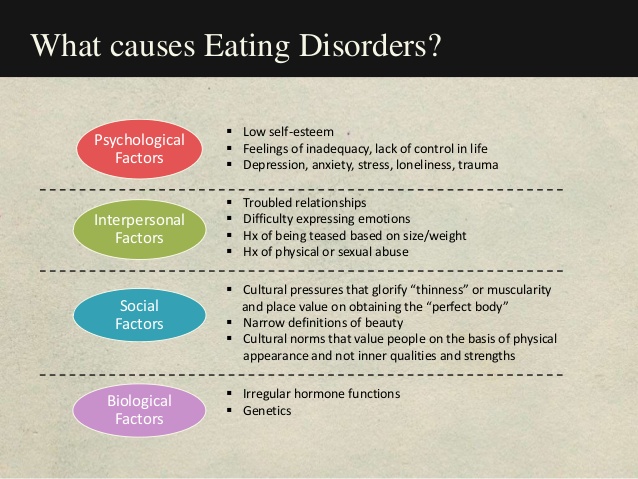 You know what he likes about you, so highlight those qualities. If there is no relationship, write an ad that attracts a person with whom you would like to go on a date. Describe yourself in such a way that he can see why you will make his life better.
You know what he likes about you, so highlight those qualities. If there is no relationship, write an ad that attracts a person with whom you would like to go on a date. Describe yourself in such a way that he can see why you will make his life better.
Source
Exercise 2: Write a cover letter for your dream job
Imagine that you are preparing a cover letter in response to an ad for your dream job. Opportunities like this don't come along very often and shouldn't be missed, so try to list all the reasons why the company should offer you a job, and what benefits it will get if you become its employee.
Exercise 3. Write a letter of recommendation
In this exercise, write about yourself in the third person. Depending on the stage of life, you can contact:
a) to the admissions office and try to help the applicant (you) enter the university;
b) to the employer and try to convince him to hire this candidate (you);
c) a landlord, credit manager, business associate, or anyone else this person (you) is trying to impress.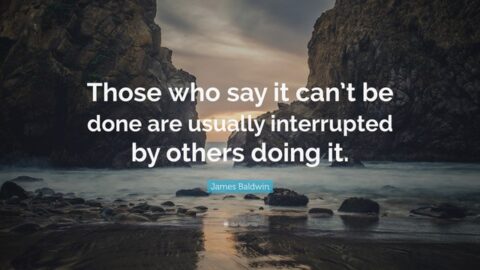
For other strategies, see the book Brain with Obstacles
Photo of cover“Not good enough”: how to overcome doubts about
10 269
To know the self -roperates How Toantistress
Prove “Goodness”
If we do not love ourselves, it may seem that we need to need that we need "prove" one's superiority over others in order to alleviate inner pain. This is called overcompensation. The problem is that it doesn't work.
We feel like we have to constantly prove something to others until they realize that we are "good enough." The mistake in this case is that we take other people's accusations and criticism too seriously. nine0004
In this way, as if we are trying to defend ourselves in an imaginary court, proving our innocence in an attempt to avoid punishment
For example, someone says to you: “You never listen to me” or “You always blame everything on me!”.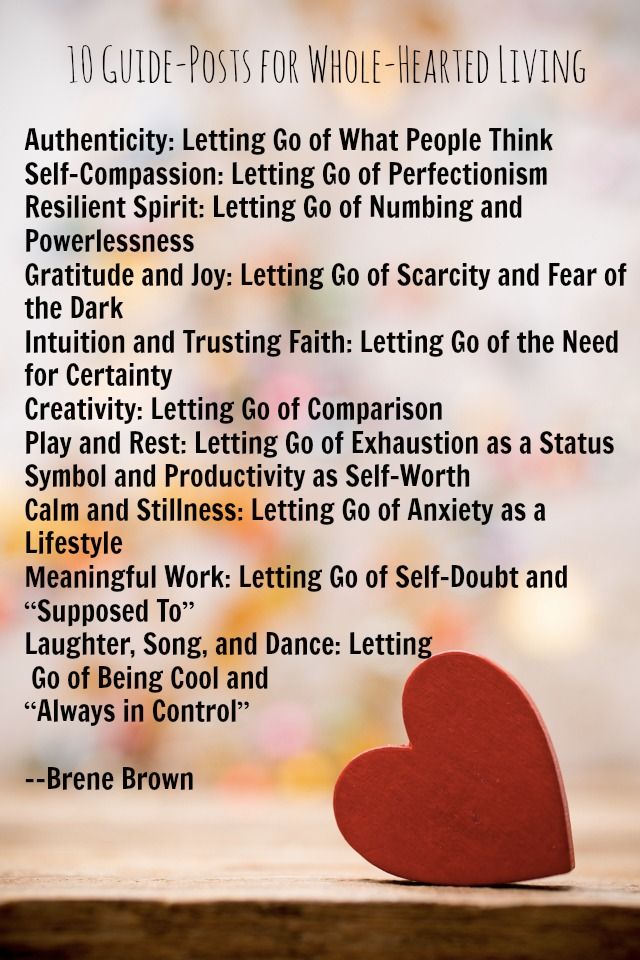 These "never" and "always" often do not correspond to our real experience. Often we begin to defend ourselves against these false accusations. In our defense, we present various types of evidence: “What do you mean I never listen to you? You asked me to call the plumber, and I did. You can look it up on your phone bill." nine0004
These "never" and "always" often do not correspond to our real experience. Often we begin to defend ourselves against these false accusations. In our defense, we present various types of evidence: “What do you mean I never listen to you? You asked me to call the plumber, and I did. You can look it up on your phone bill." nine0004
It is rare that such excuses can change the point of view of our interlocutor, usually they do not affect anything. As a result, we feel like we lost our “case” in the “court” and feel even worse than before.
In revenge, we ourselves begin to throw accusations. In fact, we are "good enough". Just not ideal. But being perfect is not required, although no one will directly tell us this. How can we judge which people are "better" and which are "worse"? By what standards and criteria? Where do we take the "average person" as a benchmark for comparison? nine0004
Accept self-worth
Money and high status can make our lives easier, but they don't make us "better" than other people. In fact, how (hard or easy) a person lives does not say anything about his superiority or inferiority compared to others. The ability to persevere in the face of adversity and keep moving forward is courage and success, regardless of the end result.
In fact, how (hard or easy) a person lives does not say anything about his superiority or inferiority compared to others. The ability to persevere in the face of adversity and keep moving forward is courage and success, regardless of the end result.
Bill Gates cannot be considered “better” than other people because of his wealth, just as one cannot consider a person who has lost his job and is on welfare to be “worse” than others. Our value does not come down to how much we are loved and supported, and it does not depend on our talents and achievements. Each of us from birth is valuable and worthy of love. We will never become more or less valuable. We will never be better or worse than others. nine0004
No matter what status we achieve, how much money and power we get, we will never get "better". Similarly, no matter how little we are valued and respected, we will never get "worse". Our successes and achievements do not make us more worthy of love, just as our defeats, losses, and failures do not make us less worthy of love.
 In this article, we'll first define self-doubt in psychology. Then, we'll talk about what contributes to self-doubt and how to manage it.
In this article, we'll first define self-doubt in psychology. Then, we'll talk about what contributes to self-doubt and how to manage it. It could be about our thoughts, beliefs, emotions, opinions, decisions, self-views, or any "truth" we hold in our minds. We have a sense that we are not stable. However, researchers further suggest that self-doubt specifically involves questioning our own self-competence (Braslow, Guerrettaz, Arkin, & Oleson, 2012).
It could be about our thoughts, beliefs, emotions, opinions, decisions, self-views, or any "truth" we hold in our minds. We have a sense that we are not stable. However, researchers further suggest that self-doubt specifically involves questioning our own self-competence (Braslow, Guerrettaz, Arkin, & Oleson, 2012).
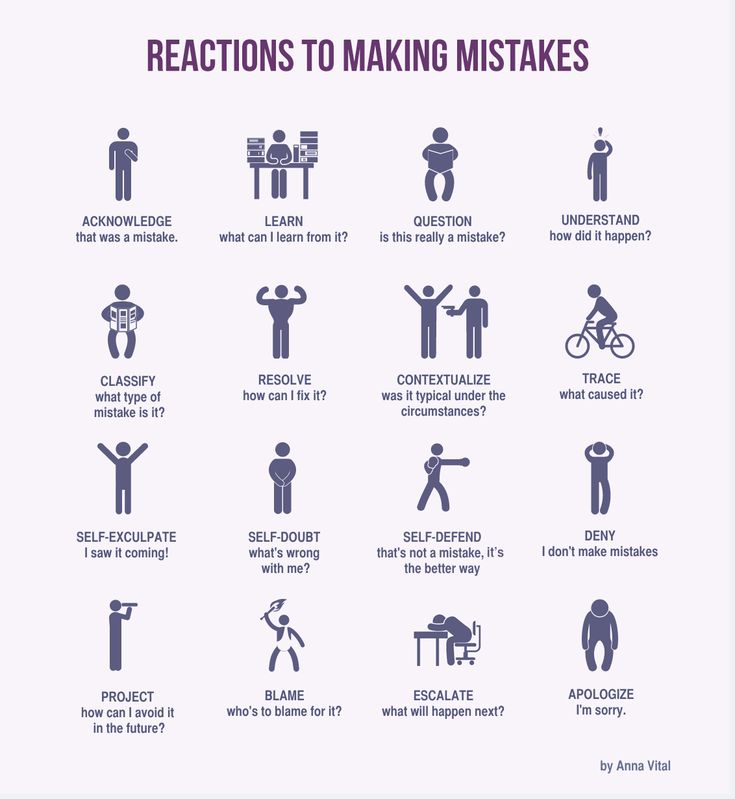
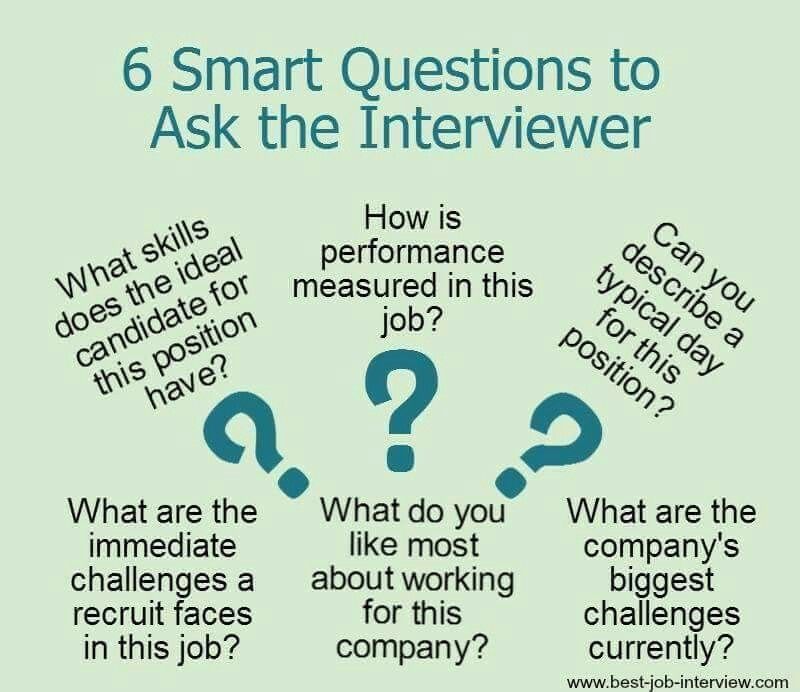 .. can lead to self-doubt.
.. can lead to self-doubt.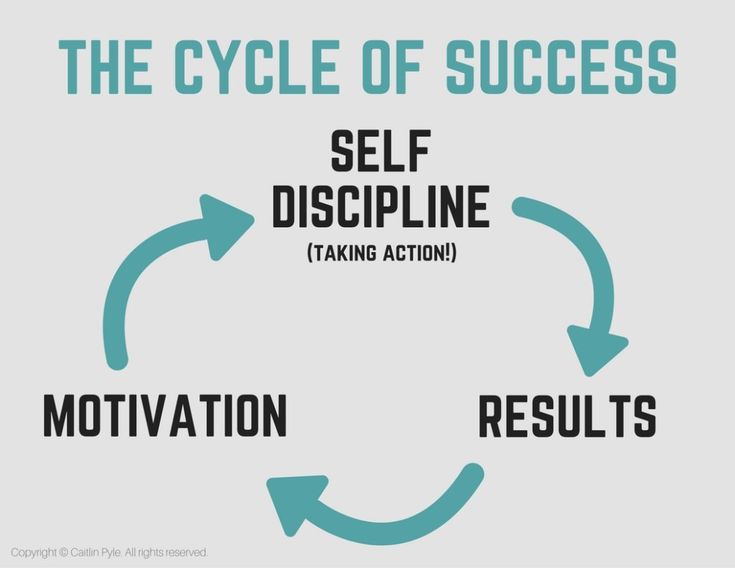
 "If we fail and someone else succeeds, it must be due to some unfair advantage they had", we might tell ourselves.
"If we fail and someone else succeeds, it must be due to some unfair advantage they had", we might tell ourselves.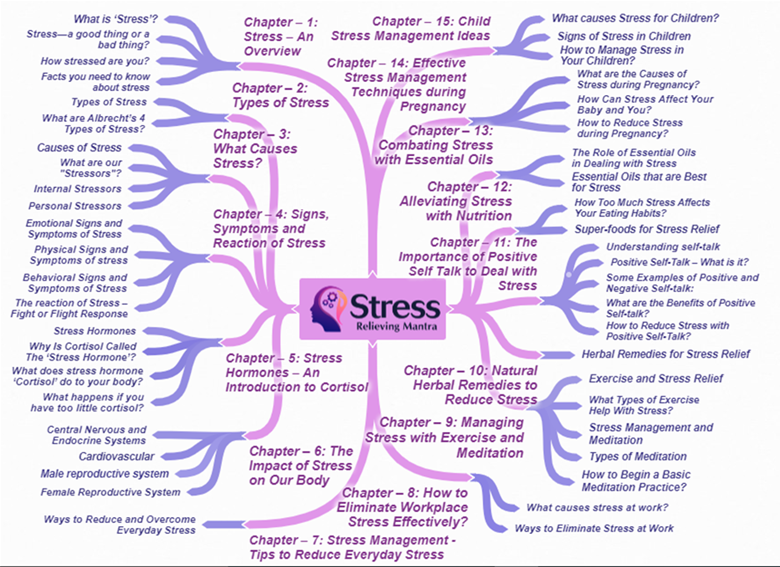 You can see how self-doubt—or uncertainty—could begin to destabilize these blocks and erode our self-esteem. So it may be helpful to think through how to stabilize these blocks. To do so, ask yourself:
You can see how self-doubt—or uncertainty—could begin to destabilize these blocks and erode our self-esteem. So it may be helpful to think through how to stabilize these blocks. To do so, ask yourself: 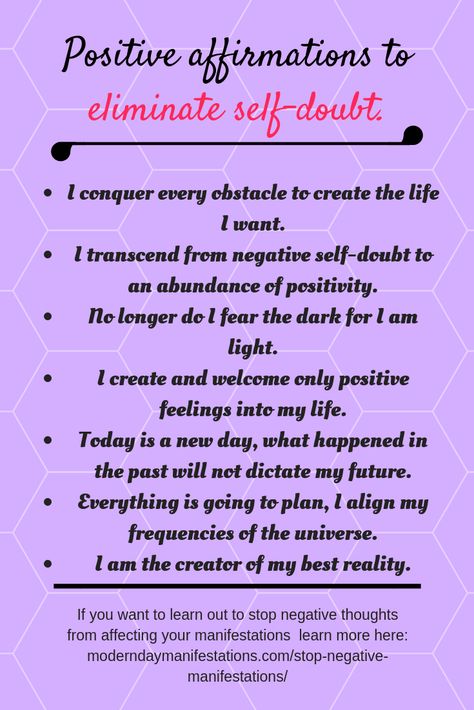
 First, find your strengths by asking yourself what you're good at. Then try to focus on these strengths when and if you find that you are doubting yourself.
First, find your strengths by asking yourself what you're good at. Then try to focus on these strengths when and if you find that you are doubting yourself.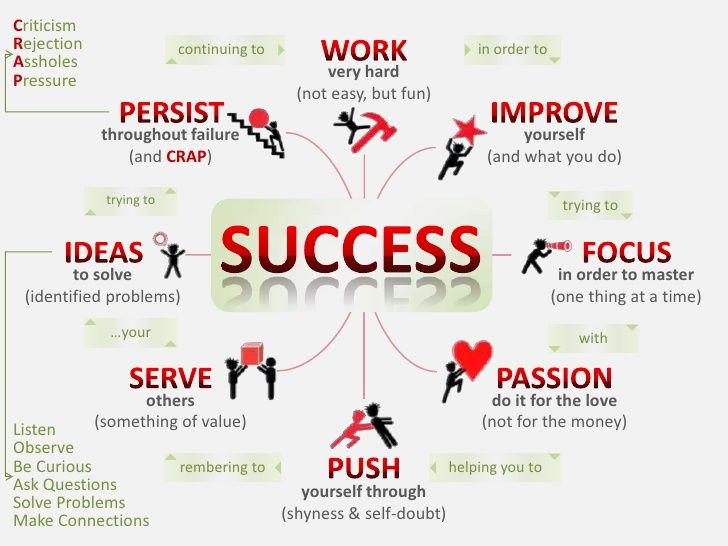 For example, maybe we've told ourselves a thousand times that we are going to start eating healthfully... but we never do it. Or maybe we tell ourselves that we're in a happy marriage but yet we keep cheating on our spouse. It's no wonder we doubt ourselves if we're not really being honest with ourselves. And it's why building self-trust may be a key step in getting rid of self-doubt.
For example, maybe we've told ourselves a thousand times that we are going to start eating healthfully... but we never do it. Or maybe we tell ourselves that we're in a happy marriage but yet we keep cheating on our spouse. It's no wonder we doubt ourselves if we're not really being honest with ourselves. And it's why building self-trust may be a key step in getting rid of self-doubt. (2000). Subjective overachievement: Individual differences in self‐doubt and concern with performance. Journal of personality, 68(3), 491-524.
(2000). Subjective overachievement: Individual differences in self‐doubt and concern with performance. Journal of personality, 68(3), 491-524.
